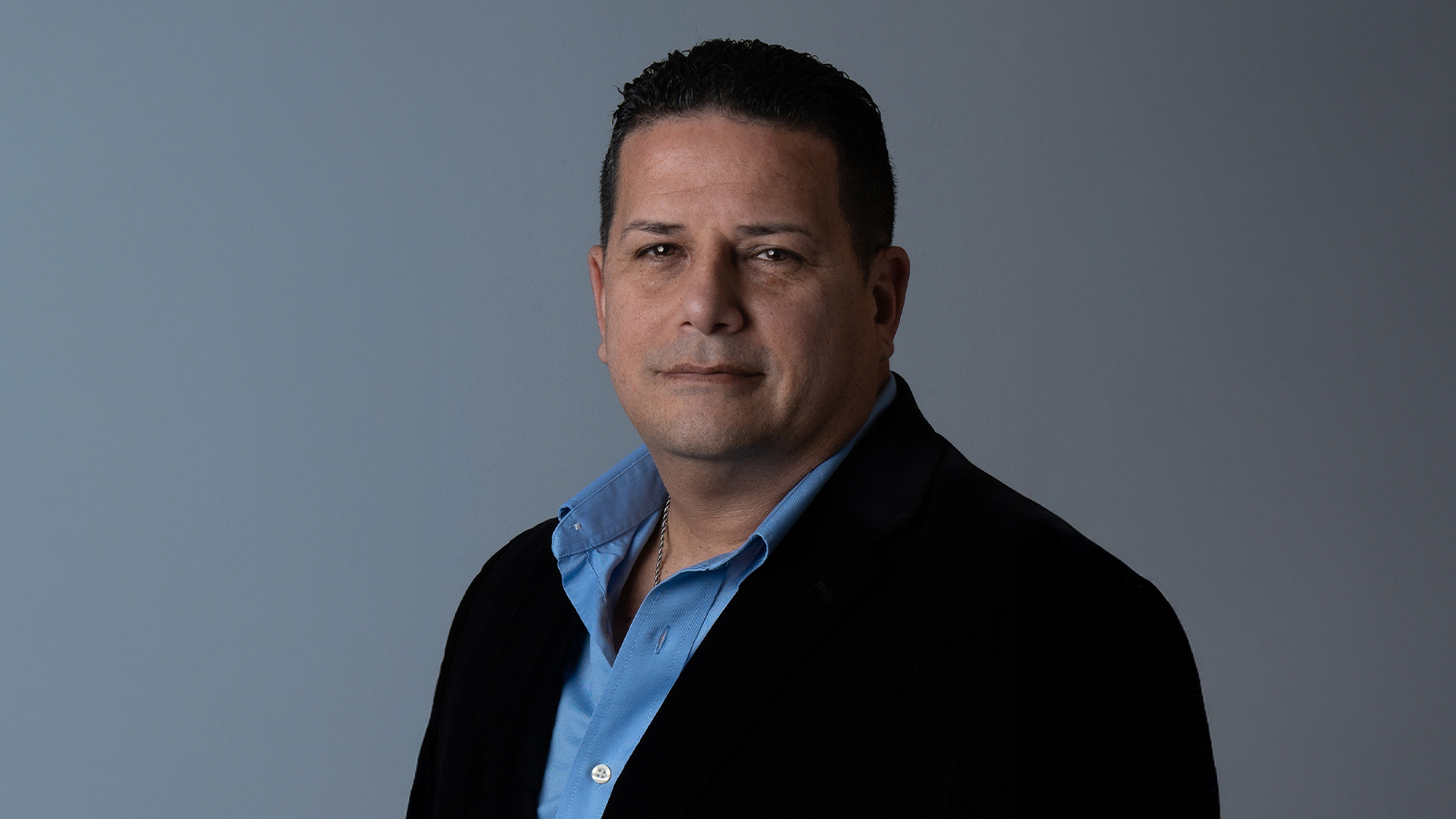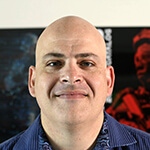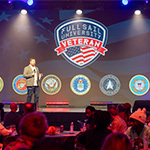Full Sail Stories
Published Nov 11, 2025
Meet Sandy Navarro, Military Outreach Representative & Community Liaison
The Army veteran supports military students at Full Sail’s Military Student Success Center.

Sandro “Sandy” Navarro loves supporting Full Sail University’s military students. An Army veteran himself, he currently serves as the Military Outreach Representative & Community Liaison for the Military Student Success Center on campus. He provides support to active military and veteran students and reaches out to local community organizations for resources to assist students with military backgrounds.
We sat down with Sandy to hear more about his current role and the experience he brings to Full Sail.
Tell us about your job and what your typical day-to-day work involves.
For outreach, my responsibility is to go out to military bases and be a champion for Full Sail. I talk about what we offer, and what our facilities are like. We have a meet and greet with alumni and students where I share how we can support them in every way, shape, or form. I even bring them swag. They don't get the experience of the campus, but I try to do that as much as possible.
And then as a Community Liaison, my job here is to look for resources to assist our military veterans. We have the Florida Department of Veterans Affairs come at least two to three times a month so the veterans can file claims. Additionally, there's scholarships, grants, help with homelessness, food pantries – things that are free to them and resources that they may not know about. My job is to point them in the right direction.
At the same time, my role is to help coordinate events on campus. I do the Veterans’ Day 5K, the Thanksgiving dinner, the 4th of July Block Party, [and] the VSU Film Festival. I'm proud to say that our events are probably among the most well-attended events on campus.
Can you tell us about your career in the Army? What roles did you serve in and what projects did you work on?
I come from a military background, as my father was retired military. I joined in 1988 as a Communication Specialist and retired 32 years later. I jumped out of airplanes and did special operations. Eventually, I got promoted to Sergeant and I was a truck master and instructor trainer. Then I became a First Sergeant and ended up in charge of at least 200 soldiers at one given time, and I was second to the Commander. My role as the First Sergeant was to ensure all the soldiers were properly trained to do their jobs, but at the same time to come back home safe and sound. I also advised the Commander on the dos and don'ts, what's in his best interest for the command, and kept him out of trouble. I was also in charge of making sure the families were taken care of, so I was the bearer of bad news, that if something happened, unfortunately, I was the one to give the notification and be with the families.
I was deployed for two years, so I'm a combat veteran. I was awarded the Combat Service Medal because I was actually in the gun fight and had to return fire, so I saw quite a bit.
How does your military experience inform your role at Full Sail?
I'm direct, but I'm tactful and I'm empathetic. But I have to be a realist. There's a lot of red tape [for veterans] sometimes, unfortunately. I don't break rules, but I'm a firm believer in bending them [to help cut through that red tape].
Tell us about the support you provide to military students and alumni at Full Sail.
Alumni have my contact information if they need anything. Resource-wise for students and alumni, I make sure that they have access to scholarships and benefits from the military as well as organizations that provide support. I go out in the community and look for new resources that could potentially be available to military members and veterans, which could be anything that you can imagine, from food, clothing, and housing to counseling for PTSD and financial advice – anything to make students’ lives easier so they can concentrate on their degree.
What’s your favorite part of your job?
The part that I get a kick out of is when students come back and tell me, "Thank you, Sandy,” and they tell us about their news.
The best one so far was when a student came to me and she said, "Sandy, I just want to say thanks." She started crying ... she came specifically just to tell me, "I just got custody of my kids again. I have a job. I have a house. I have a car. And all of it's because you were patient with me.”
It made me feel really good because I just did my job. When I see the satisfaction of a student doing well, it means the world to me.



